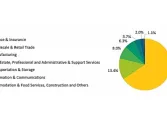How regulation can boost Asia's role in the international financial scene
By Bryan O'NeillNow, more than ever, there is a greater call for Asia to step up and play a bigger role in international financial institutions and along with this greater role will come the challenges of regulation. United States Deputy Secretary of Treasury, Neal Wolin, on a recent address to the Singapore Exchange, said global coordination on financial regulation will create strength in the international market in averting a future crisis.
This sentiment is echoed locally by Asian financial leaders too. Mr. Ravi Menon, Managing director of the Monetary Authority of Singapore (MAS), has highlighted that the need to redefine the roles of markets and regulation. Particularly, he spoke on the fact that self-regulations and market discipline are no longer sufficient to ensure market stabilityii. The answer to these challenges thus lies in smarter – not simply more – regulation.
Singapore is in fact one country where we will see a strong commitment to regulatory change. The second half of 2011 looks set to see legislative amendments by the Monetary Authority of Singaporeiii and in January, the Economic Crimes and Governance Division was set up to prosecute complex financial crimes.
While the City accepts, in fact welcomes, measures designed to bring greater stability to Asian financial markets and reduce excessive risk taking, there is a danger of over-regulation. Confronting market issues requires a coordinated effort between financial services firms, exchanges as well as other trading facilities and regulators.
In a paper released by the Asia Development Bank Institute in 2010, it was noted that financial regulations and coordination have progressed furthest in banking and data dissemination in East Asia, but have stagnated with regard to corporate governance and related accounting standards.
Lawmakers are right to be concerned with issues such as short selling, algorithmic, high frequency trading and dark pools. However, they must not let that concern lead to banning these effective, liquidity-providing activities. If the regulators focus on their roles as market policemen, they will stand a better chance of sensing and responding to fraud, market manipulation, fat finger and insider trading.
But to keep up requires a different kind of regulation – a mandate for technology, which can help to spot and manage these issues. In an ideal scenario, buy-side and sell-side firms and brokers would deploy pre-trade risk management tools to catch fat fingers and fraudsters. Exchanges and MTFs would employ better central monitoring and surveillance capabilities using technology that allows them to see major price and volume spikes, how often they happen and maybe even why, and whether a pattern in market behaviour caused them.
The same technology would enable them to flag liquidity concerns by monitoring how liquidity moves across venues. This is a huge issue for regulators as the markets become increasingly fragmented. They have also fallen behind in supervising the markets that they are responsible for, partly due to budgetary constraints and partly due to an atmosphere of complacency.
Moderating risk was not a top priority for regulators when times were good. After all, why interfere with a booming financial services industry? However, when things took a turn for the worse in 2008, they realized that they lacked the technological tools and – to an extent – the authority to fix things.
On the other hand, banks and hedge funds can afford to buy and use the latest technology to design and execute high-speed market strategies.
Until recently, most regulators were unaware that it was even possible to monitor the markets in real time. The traditional forms of detection such as mandatory recording of phone calls, emails and messaging conversations are all useful. But, to truly address the problem and regain trust and credibility, real-time market surveillance technology must be adopted to monitor and detect patterns that indicate potential market abuse, with support for replaying OTC alongside exchange-traded instrument data as soon as it becomes available.
With the adoption of algorithmic trading the market moves a lot faster than it used to. What has not kept pace is monitoring this high-speed trading. Detection of abusive patterns has to occur in real-time, before any suspicious behaviour has a chance to move the market – i.e. before trades are settled. This approach should be taken on board not just by the regulators, but by the industry as a whole.
Technology can’t solve all of these problems, but it can help to give far more market transparency. To restore confidence in capital markets, organisations involved in trading need to have an accurate, real-time view of what’s going on. Mandating the use of this technology is smarter regulation.
i Remarks by Deputy Secretary Neal S. Wolin at the Singapore Exchange
https://www.treasury.gov/press-center/press-releases/Pages/tg1186.aspx
ii Opening Address by Mr. Ravi Menon, Managing Director, Monetary Authority of Singapore at the Inaugural Sim Kee Boon Institute Annual Conference on Financial Economics
https://www.mas.gov.sg/news_room/statements/2011/A_New_Financial_Landscape_Rebalancing_on_Three_Fronts_Ravi_Menon_MD_MAS_Opening_Address_at_the_Inaugural_Sim_Kee_Boon_Institute_Annual_Conference_on_Financial_Economics.html
iii MAS Issues Response to Feedback on the Review of the Regulatory Regime For Fund Management Companies and Exempt Financial Intermediaries
https://www.mas.gov.sg/news_room/press_releases/2010/MAS_Issues_Response_to_Feedback_on_the_Review_of_the_Regulatory_Regime_For_Fund_Management_Companies_and_Exempt_Financial_Intermediaries.html
iv Opening of Legal Year 2011: Address by the Honourable Attorney-General
https://www.sal.org.sg/Lists/Speeches/DispForm.aspx?ID=84
v Financial Regulatory Harmonization in East Asia: Balancing Domestic and International Pressures for Corporate Governance Reforms
https://www.adbi.org/files/2011.03.18.wp269.financial.regulatory.harmonization.east.asia.pdf




















 Advertise
Advertise








